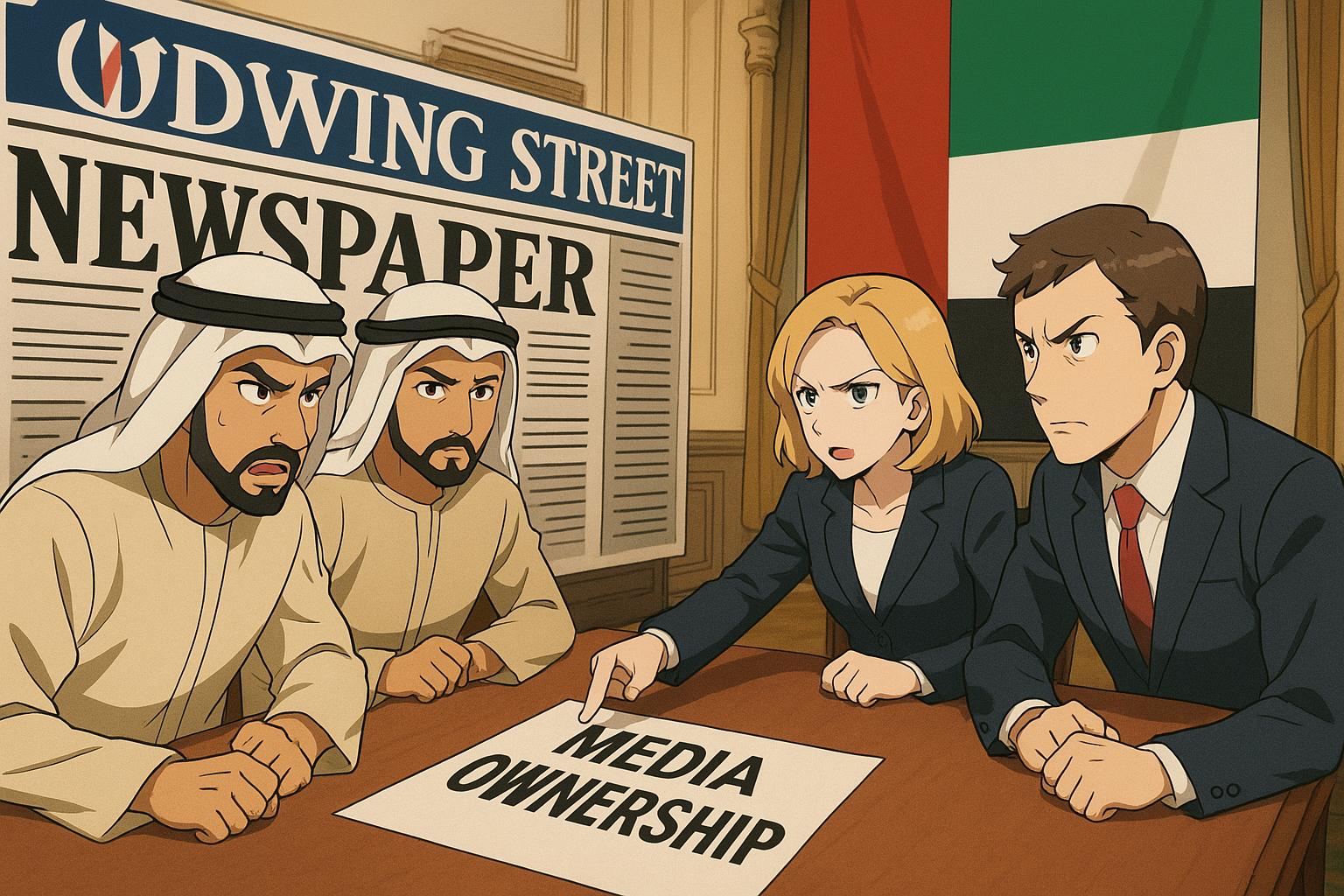In a significant move reflecting the shifting dynamics of media ownership in the UK, a recent delegation from the United Arab Emirates met with officials at Downing Street shortly before the government announced a major law change that permits foreign state investors to acquire stakes of up to 15% in British newspapers. This change marks an increase from the previously proposed limit of 5%-10%, which was initially set by the previous Conservative government.
The meeting in March involved senior Emirati representatives, including Varun Chandra, a business adviser to Labour leader Keir Starmer, who reportedly sought clarification on the impending ownership regulations. This dialogue aligns with broader governmental efforts to encourage foreign investment at a time when the UK's economic landscape is struggling and there is a clear desire to attract international capital. The proposed legislative change could enable the UAE to take an investment stake in the Telegraph, anticipated to be facilitated through an investment vehicle known as IMI, linked to the royal family of Abu Dhabi.
This decision, while seen by some as a necessary step towards economic revitalisation, has raised concerns among journalists and politicians alike regarding the undue influence that foreign states could exert over British media. Critics argue that allowing increased stakes in influential publications like the Telegraph compromises editorial independence. Fraser Nelson, a former editor of the Spectator, described the government's approach as “an indefensible sellout, in defiance of parliament’s vote to protect press freedom.” Additionally, prominent figures such as Andrew Neil have called for accountability from the culture secretary, suggesting her position is untenable in light of this shift.
The Liberal Democrats have indicated their intent to challenge the legislation in the House of Lords, with party spokesperson Max Wilkinson asserting that the move endangers the integrity of editorial decisions within the press: “It’s a plan we wholeheartedly reject,” he stated. There is palpable concern that this legislative development may divide the Conservative party, with many members apprehensive about the implications of foreign ownership over media narratives that could influence public opinion and policy.
As the backdrop to this controversy unfolds, the Telegraph's ownership saga, ongoing for nearly two years, has been marked by high-profile bids, including an aborted attempt by Abu Dhabi-backed RedBird IMI to acquire the newspaper for £550 million due to national security concerns. Under the new regulations, it is expected that RedBird will move forward with a proposal allowing a 15% input from IMI, effectively rekindling interest from potential investors following the previous restrictions.
In the wider context, opposition to foreign ownership in UK media has been demonstrated by public sentiment; a recent poll indicated that two-thirds of voters oppose foreign government ownership of domestic media organisations, echoing the sentiments of many Conservative constituents. Indeed, the UK media landscape has been characterised by intense debates surrounding the balance of foreign investment and national interest. The rise of digital media and the profound effects of declining print sales have stirred further anxieties about the financial sustainability of traditional newspaper entities.
The far-reaching implications of this new law could alter not only the ownership dynamics within the media but also set a precedent for future regulations regarding foreign influence and investment in the UK. As the media industry grapples with technological challenges and changing consumer behaviour, the ramifications of this legislative decision will undoubtedly be scrutinised in the coming months, both in Parliament and through public discourse. The balancing act sought by government officials, trying to secure financial backing while preserving press freedom, may prove to be a contentious endeavour that shapes the media’s future in the UK.
Reference Map
- Paragraph 1: [1]
- Paragraph 2: [1], [2]
- Paragraph 3: [1], [3]
- Paragraph 4: [1], [4]
- Paragraph 5: [1], [5]
- Paragraph 6: [1], [2], [3], [4]
- Paragraph 7: [5], [7]
- Paragraph 8: [2], [3], [4], [6]
Source: Noah Wire Services
